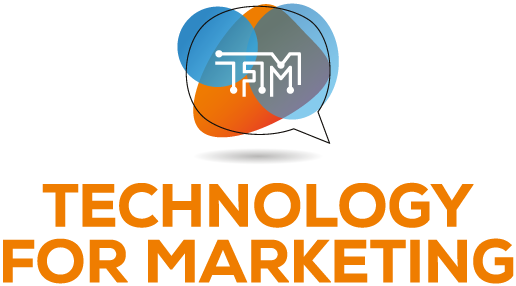Digital commerce and the future of e-commerce as we know it: Pre-keynote interview with Karl Lillrud
It is often said that the best business people are those who live to solve problems - not just sell products. But sometimes it can be hard to see the wood for the trees. Organisations can struggle to maintain the perspective - or to truly put themselves in the shoes of their peers and prospects. And because of this they miss valuable opportunities to grow.
Karl Lillrud, business coach and professional speaker, has extensive experience in helping businesses remove these blinders. He works with businesses such as H&M, Spotify, AstraZeneca, 3, Tele2, TUI and a host of Fortune 500 companies to convert bottlenecks into opportunities.
He’s helped over a 1000 e-commerce stores increase their conversion rates and spark market growth. And he’s sharing his knowledge on the mainstage at ‘Ecommerce Expo’ during his session on September 28th.
We caught up with Karl ahead of his session to get his sense on the challenges shaping the retail landscape. Here’s what he had to say.
What is the biggest challenge for ecommerce retailers heading into Q.4?
There is every indicator we are heading into recession. And as companies brace for impact, they invariably speed up the process. This is another big challenge in a global market which is still recovering from the impact of the pandemic and more recently the ongoing war in Ukraine.
On top of this you have a strong desire by consumers to spend - contrasted against supply chain issues and rising costs.
It is a unique context for us all to operate in. But, just as there were during the height of the pandemic, there will be opportunity for e-commerce brands to effectively engage customers.
It’s all about supporting their decision making process and providing strong experiences which encourage return business. With Cost Per Acquisition (CPA) running high - loyal customers are the best defence against the looming recession.
What’s the biggest challenge in your category?
Every category will face challenges. Luxury goods are usually the first products to suffer a decline in sales during bleak economic periods - but this may not be the case now.
After a few years of hype around Crypto, NFTs and digital assets - there is a notable return in people investing in physical goods. Just look at the scale of investments in precious metals like gold. Luxury goods from powerful brands also carry this immutable value - and so there is an opportunity for these brands to continue sales as consumers look to protect their cash.
What trends do you see developing in ecommerce over the coming 12 months?
E-commerce businesses around the world are watching their flow of new customers slow down - and generally orders from existing customers are reducing too. The brands that will emerge stronger over the next twelve months are those which craft compelling experiences which foster long term relationships with customers.
Retailers are creating detailed personas and customer profiles which allow for intelligently personalised experiences. Personalisation is a powerful tool for accelerating customer journeys.
Do you think the metaverse will be transformational for commerce and marketing?
E-commerce isn’t just about ordering stuff you can hold in your hands. Over the last few years we’ve seen a growing number of transactions for digital products - such as a SAAS, or NFTs or a Gucci jacket in the Metaverse.
It might seem weird to us that a branded jacket on a virtual avatar would have any value. But it is very normal for our children. Just like in real life, people build personalities and communicate social status through items in these digital environments. And if it matters to people, it matters to retailers.
The rise of the Metaverse is symbolic of a power-shift in retail. Meta, for example, is not forcing users to wander around worlds created for them. Instead, it is empowering users to build the world themselves. Retailers will have to think carefully about how they exist within a digital-mall created by their customers, rather than themselves.
What technological innovations do you think will most help ecommerce in the coming 12 months?
I am a big believer in sensors. Currently I think we are looking at sensors the wrong way. Having an entirely cohesive, genuinely useful smart-home set up is still a long way from being a daily reality for most consumers.
Instead of smart homes, I believe there is an opportunity in specific sensors. Mainly because it is so simple! LEGO made its own OS which empowered its users to create dynamic modules which could sense space, pressure, temperature and more. And with this people could create whatever they want.
So why can’t brands do that? Why does a sensor need to be smart?
There could be a sensor in your rug so it knows when you are up and out of bed - turning on the lights or maybe boiling the kettle. Or a sensor which counts the rotations of a toilet paper roll and orders new rolls when it senses you are nearly out. Amazon Dash was an early example of this thinking.
Though brands will have to bear a short term expense - it seems a powerful way to create huge amounts of returning customers.
Why are face to face conference events like Ecommerce Expo and Technology for Marketing so valuable?
It can feel slightly hypocritical to talk about the importance of F2F at an e-commerce focused event!
But the reality is that many of the ways in which they connect virtually are still quite flat. Zoom and video calls do not yet fully capture or communicate the rich nuances of human interaction. And adding these layers is where the opportunity for the metaverse lies.
I regularly give TED Talks and seminars - both in person and on Zoom - and the difference is stark. It is a challenge to really connect to a big audience on Zoom. There is too much competition for attention - people turn screens off and half-listen while working on something else.
You cannot underestimate the energy that in-person conferences bring - or the powerful connections they inspire.
Hear more from Karl at his session ‘Digital commerce and the future of e-commerce as we know it’ at the Keynote Theatre, 11:00-11:45 on September 2022.
Latest News
-
Kat Worley on Optimising the Online Experience
26 Nov 2025Ecommerce manager Kat Worley shares how data, creativity, and customer-centric thinking shape impactful digital experiences, reflecting on career lessons, platform insights, and the innovations transf ... -
Top 100 Marketing Influencers — 2025 Ranked List
30 Sept 2025Discover the Top 100 Marketing Influencers of 2025. The visionaries, innovators, and disruptors shaping digital, brand, content, social, and growth marketing, driving conversations and redefining indu ... -
Meet some of the team behind eCommerce Expo and Technology for Marketing. From planning highlights to industry trends, discover how they shape the UK’s biggest retail and marketing events.
-
Grace Miller reveals how “failing smarter” transforms experimentation into growth. From lessons learned to advice for future innovators, she explains why embracing failure is the key to progress in eC ...
-
How Temu Helped This UK Manufacturer Increase Sales and Create Jobs
26 Aug 2025 TemuFacing rising costs and shrinking sales channels, Nova Tissue turned to Temu. The platform rapidly boosted sales, safeguarded margins, and created UK jobs—transforming e-commerce into a major growth d ... -
Michelle Hurney on Personalised & Powerful: Driving Retention Through Smart CRM
20 Aug 2025 Phoebe Dunsmore, Marketing ExecutiveMichelle Hurney, Head of CRM at Wonderskin, explores career lessons, customer engagement, and how data, empathy, and AI shape the future of retention-focused marketing. -
The Rise of Influencer Accountability: Misrepresentation, Fines, and Evolving With The Industry
20 Aug 2025 RightlanderIn today’s digital economy, high-profile social media influencers wield significant power over consumer behaviour. However, with great influence comes great responsibility. From Italy to the UK and be ...

)
)
)
)
)
)
)
)
)
)
)
)

)
)
)
)
)
)
)
)
)
)
)
)
)
)
)
)
)
)
)
)
)
)
)
)
)